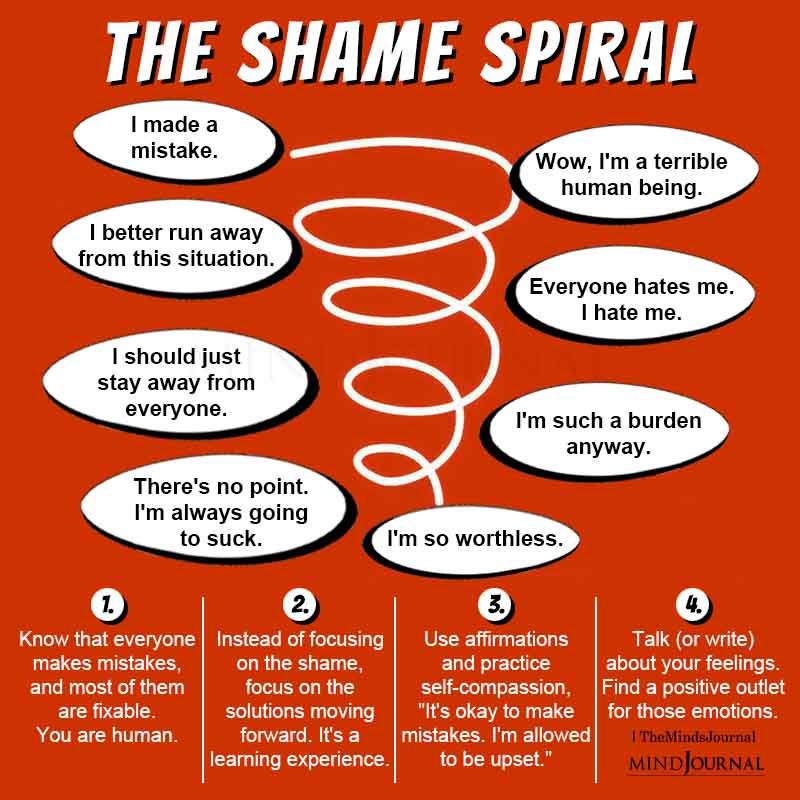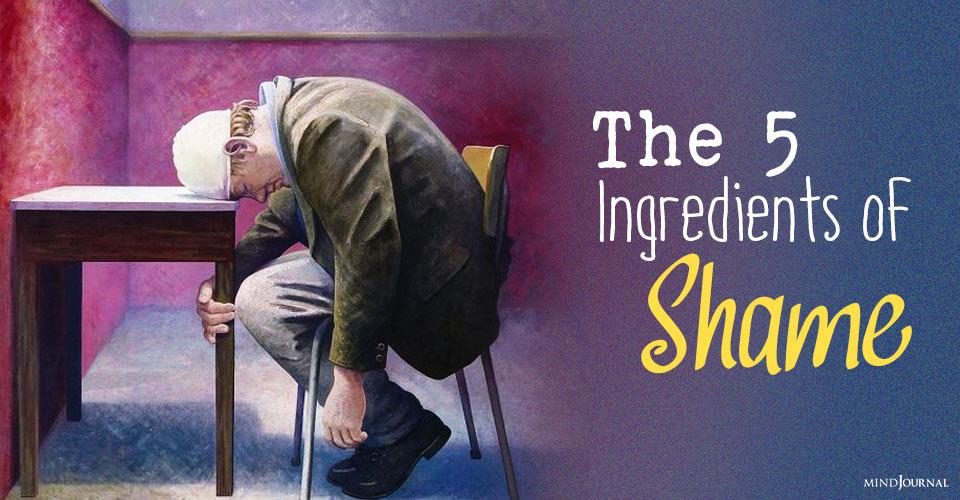All of us experience shame at various points in our lives. But what is a shame, and what are the causes of shame? Shame can be an emotionally crippling thing to experience, especially when you are feeling ashamed of yourself. That’s why it’s important to know the causes of shame or shame triggers so that you can deal with your feelings in a much better manner.
KEY POINTS
- Guilt is part of the shame profile, but not all of it.
- Shame maintains moral codes, but morals are highly subjective.
- Used as a tool to control, contain and train, shame can become toxic and chronic.
- Shame can freeze us into long-term inaction: Better to do nothing, we think, than risk doing something shameful.
Shame is a raging cold-sweat dread about things we deem vile yet which we have done, said, thought, desired, been, or still are.
Shame is a punch-your-forehead cocktail of emotions that simmers and swells inside of us and refuses to be talked away.
Shame is not bland embarrassment. Shame is not wishing we had ordered soup instead. Shame is not wide-eyed cringe emojis on a screen.
Shame is the freefall-whiplash shock of believing that we have broken rules, caused harm, and/or are unacceptable, deserving punishment.
This punishment might come from others or oneself, and might take its ultimate form: Feelings of shame increase the risk of suicide in some, studies show.
Related: How to Stop Being Controlled by Shame and Judgement
Mainly, shame is fear — of rejection, humiliation, unacceptability, unwantedness, or being bad in a good world.
Charles Darwin studied blushing. Noting that it was caused by states of “self-attention” under the real or imagined gaze of others, he decreed this cutaneous red flag “the most peculiar of all expressions,” which “makes the blusher…suffer and the beholder uncomfortable, without being of the least service to either of them.”
Yet blushing is evolutionary. So is a shame. It has arguably shaped civilizations: Fear of burning in hell for theft lessens theft. Fear of being pinioned in stocks and pelted with spoiled fruit for public drunkenness reduces public drunkenness. But how much is enough? And who decides?
Most of us met shame young, when others used it to control, contain, or train us. They hung shame like twinkly-twirly pendulums over our playpens, beds, and desks, and infused it into basics such as friendship, food, and flesh.
They yelled or whispered “Shame on you,” rescinding our permission to experience anything else.
“Shame on you” converts glee and satisfaction into terror and regret. “Shame on you” makes our every urge aggrieve us. “Shame on you” means: Ha ha, think you can relax? “Shame on you” means: Hate yourself yet?
Ashamed, we isolate — thinking ourselves unqualified for comfort, clemency, or hugs. Too much is happening inside for us to carefully unbind the razorwire netting that is a shame.
But unbind it we must, exploring one by one its toxic threads.

The 5 Causes of Shame
1. Regret
Ashamed, we wish things had gone differently — that we had shut up, spoken up, been smarter, slimmer, stronger, nicer, or just never born. Can I erase the summer of 2007? Or that text?
Related: Healthy Shame And Toxic Shame: How Do We Live With It
2. Guilt
Affecting different brain regions, guilt and shame are considered separate emotions: guilt as a sense of wrongdoing, shame as a sense of being bad — even in ways we can’t control, such as our height. But these two feelings intersect. Guilt causes shame and shame feeds guilt.
3. Self-loathing
Shame is almost synonymous with self-loathing — a crushing, wrenching sense of being unacceptable, unlovable, unfixable, and believing that others must agree. Being ashamed means being painfully embarrassed to exist.
4. Disgust
While shame is said to have evolved in order to maintain social hierarchies, disgust is said to have evolved to help humans avoid disease. But disgust focused on oneself is shame — the kind that drives eating disorders and self-harm.
5. Fear
Ashamed, we fear exposure, accusation, and punishment. Afraid that we cannot erase those deeds or thoughts or qualities that shame us, we exist on quicksand, dreading the one ticking time-bomb we cannot escape: ourselves.
Whenever shame strikes, let us try to stand fast in its blast and trace its source. In whose voices do we hear “Shame on you”? Are they the voices of society or deities or individuals real or imagined — or our own? Might those voices be bigoted, abusive, arbitrary, antiquated, cruel?
Related: What Is Toxic Shame? How It Alters Our Self-Image
Might they not be voices at all but history, collective trauma shouting what we should and should not be?
Want to know more about the causes of shame? Check this video out below!
Check out S. Rufus’s personal website to know more about her and her work.
Written By S.Rufus Originally Appeared On Psychology Today










Leave a Reply